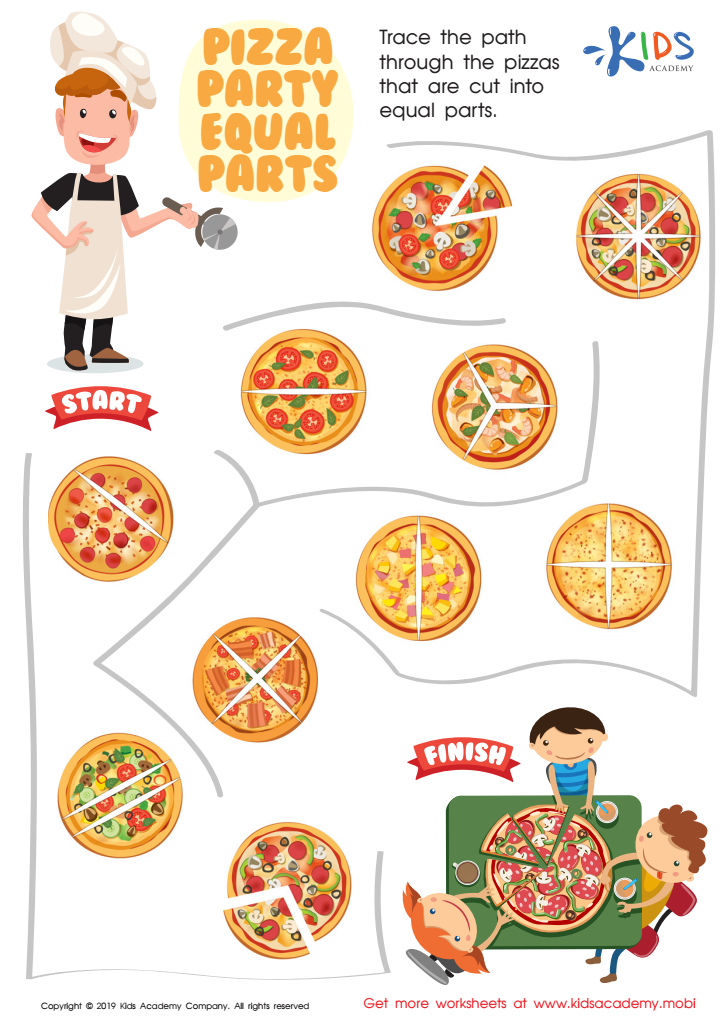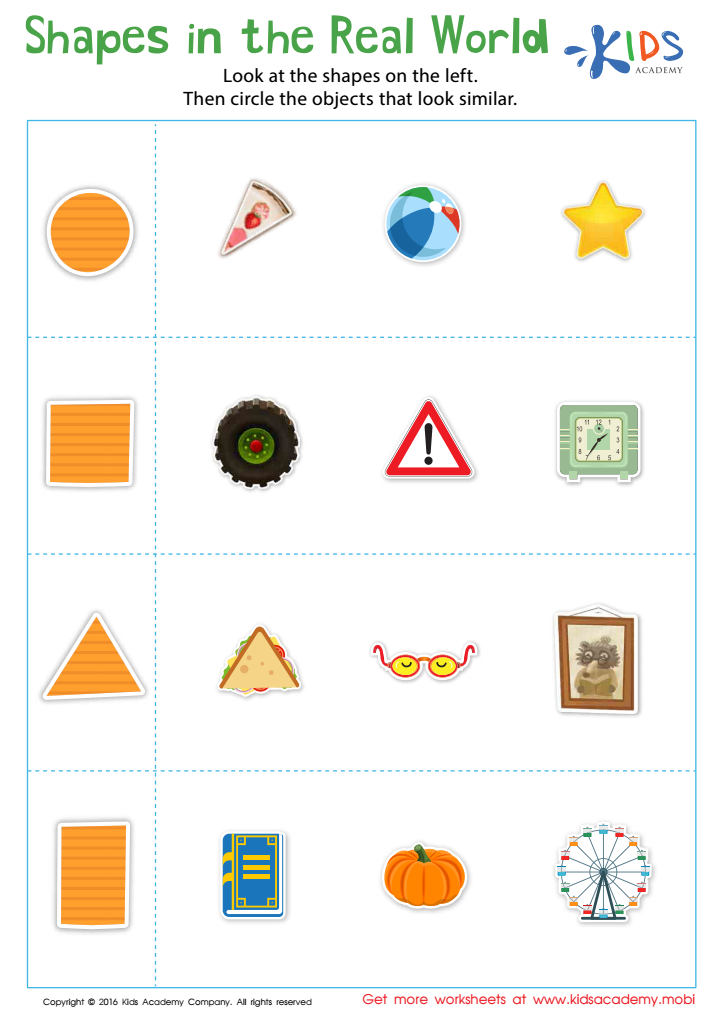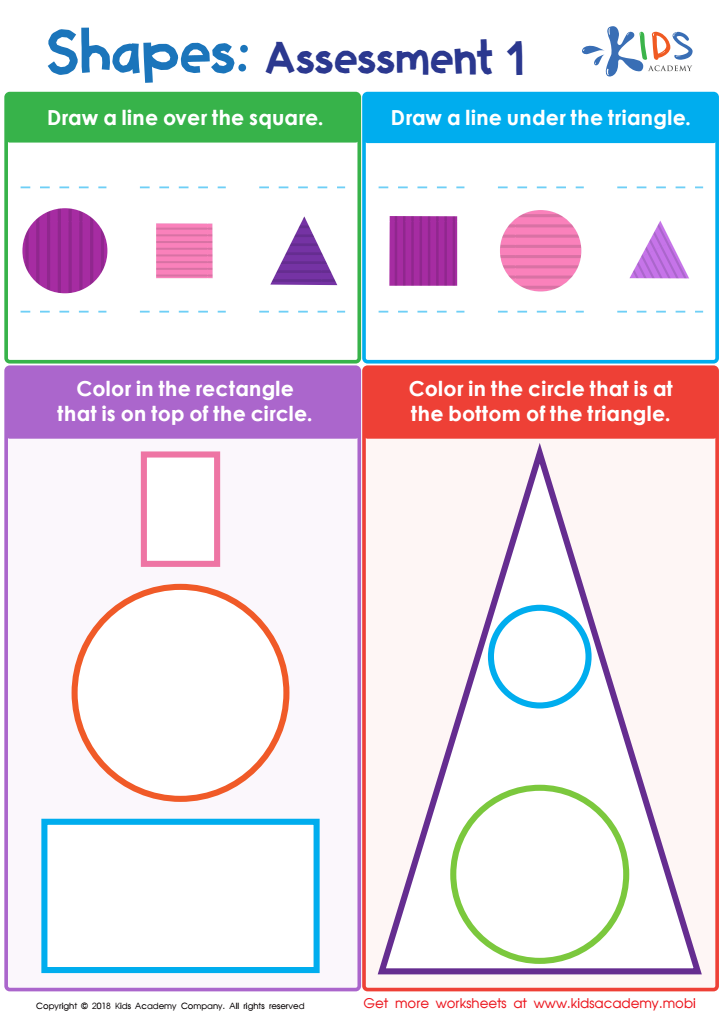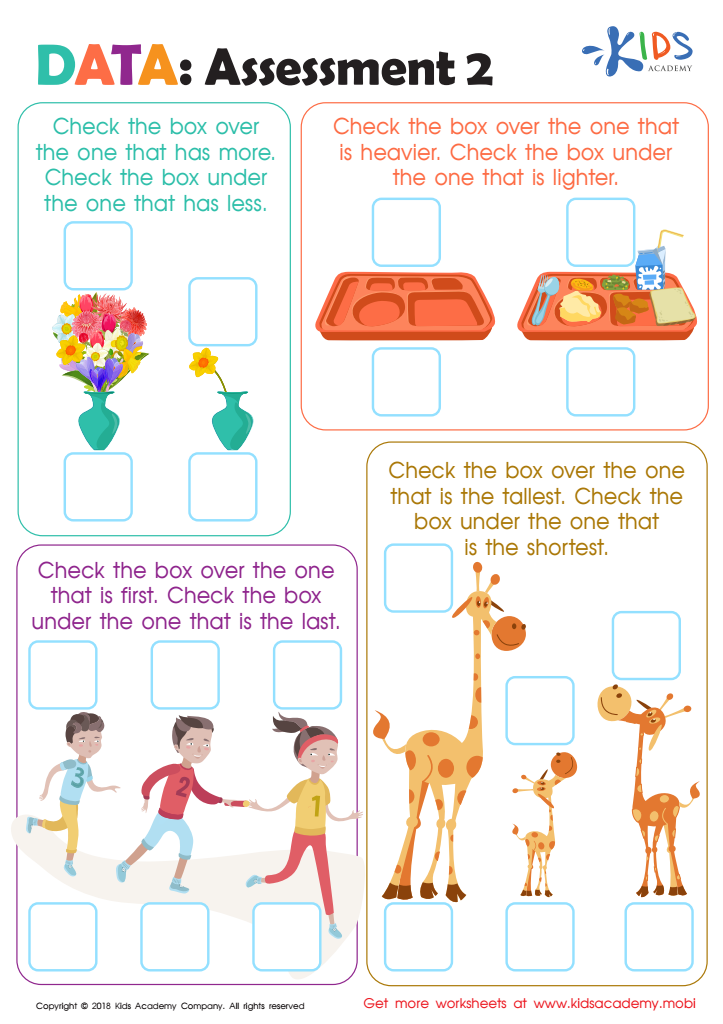Problem-solving abilities Geometry Worksheets for Ages 3-7
4 filtered results
-
From - To
Enhance your child's problem-solving skills with our engaging Geometry Worksheets designed specifically for ages 3-7! Tailored to foster critical thinking and spatial awareness, these worksheets introduce young learners to basic geometric concepts through fun, interactive exercises. From identifying shapes to solving simple puzzles, children will develop essential math skills that lay the foundation for future learning. Imagine their delight as they explore colorful, age-appropriate activities that make geometry both entertaining and educational. Whether at home or in the classroom, our worksheets will encourage creativity and confidence in young minds, setting them on a path to successful problem solving. Start your adventure today!


Pizza Party Equal Parts Worksheet


Shapes in the Real World Worksheet


Shapes: Assessment 1 Worksheet


Data: Assessment 2 Worksheet
Parents and teachers should prioritize problem-solving abilities in geometry for children aged 3-7 because these skills serve as foundational elements in a child's overall cognitive development. Early exposure to geometric concepts such as shapes, spaces, and spatial relationships not only fosters critical thinking and reasoning abilities but also enhances children's mathematical understanding.
At this age, children are naturally curious and engage in exploration, making it the perfect time to introduce them to problem-solving within geometry. This can manifest in activities like sorting shapes, constructing simple structures, or identifying geometric patterns in their environment. Such interactive learning experiences encourage children to ask questions, hypothesize, and create connections between ideas.
Moreover, nurturing problem-solving skills in geometry supports additional competencies, such as fine motor skills and hand-eye coordination when manipulating materials or drawing shapes. As children learn to navigate and manipulate shapes in their surroundings, they develop perseverance, patience, and confidence – traits central to effective problem-solving.
Lastly, early mastery of these geometric concepts establishes a strong mathematical foundation, which is crucial as children progress in school. In essence, focusing on geometric problem-solving during preschool and early elementary years is vital for equipping children with skills to thrive both academically and in everyday life.
 Assign to My Students
Assign to My Students































